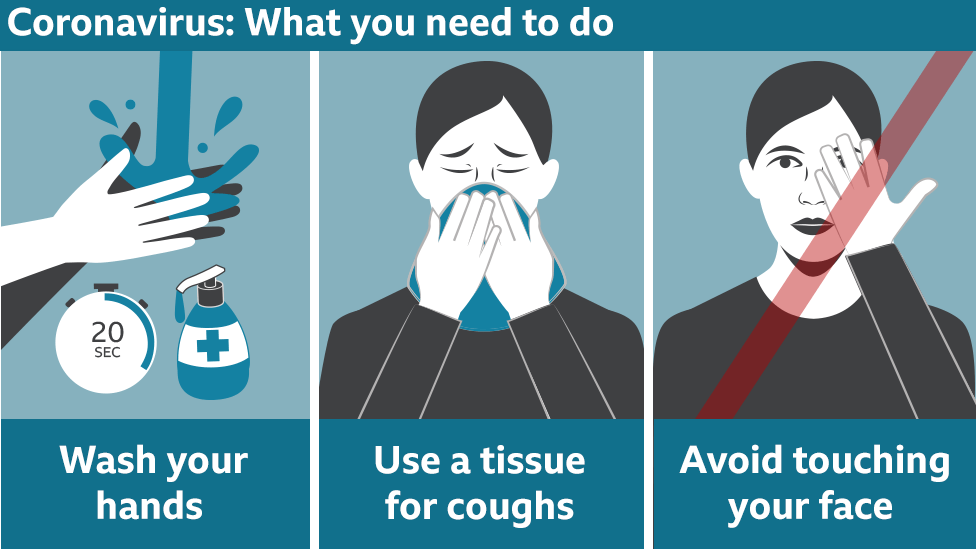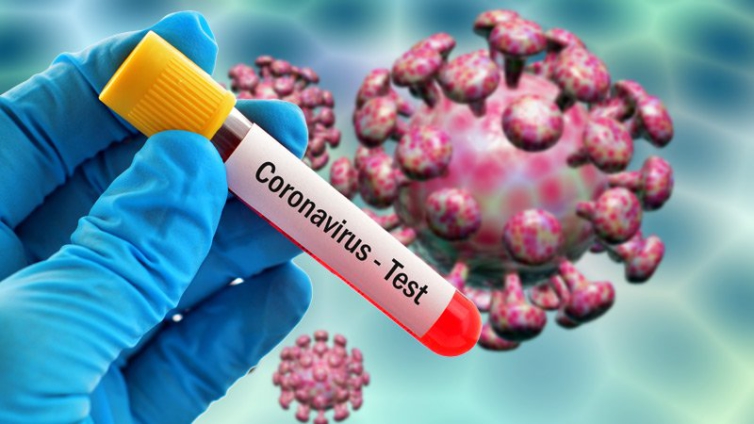The world is shutting down. Places that were once teeming with the hustle and bustle of daily life have become ghost-towns with massive restrictions put on our lives - from lockdowns and school closures to travel restrictions and bans on mass gatherings.
It is an unparalleled global response to a disease. But when will it end and when will we be able to get on with our lives?
Prime Minister Boris Johnson has said he believes the UK can "turn the tide" against the outbreak within the next 12 weeks and the country can "send coronavirus packing".
But even if the number of cases starts to fall in the next three months, then we will still be far from the end.
It can take a long time for the tide to go out - possibly years.
It is clear the current strategy of shutting down large parts of society is not sustainable in the long-term. The social and economic damage would be catastrophic.
What countries need is an "exit strategy" - a way of lifting the restrictions and getting back to normal.
But the coronavirus is not going to disappear.
If you lift the restrictions that are holding the virus back, then cases will inevitably soar.
"We do have a big problem in what the exit strategy is and how we get out of this," says Mark Woolhouse, a professor of infectious disease epidemiology at the University of Edinburgh.
"It's not just the UK, no country has an exit strategy."
It is a massive scientific and societal challenge.
There are essentially three ways out of this mess.
- vaccinatin
- enough people develop immunity through infection
- or permanently change our behaviour/society
Each of these routes would reduce the ability of the virus to spread.
Vaccines - at least 12-18 months away
A vaccine should give someone immunity so they do not become sick if they are exposed.
Immunise enough people, about 60% of the population, and the virus cannot cause outbreaks - the concept known as herd immunity.
The first person was given an experimental vaccine in the US this week after researchers were allowed to skip the usual rules of performing animal tests first.
Vaccine research is taking place at unprecedented speed, but there is no guarantee it will be successful and will require immunisation on a global scale.
The best guess is a vaccine could still be 12 to 18-months away if everything goes smoothly. That is a long time to wait when facing unprecedented social restrictions during peacetime.
"Waiting for a vaccine should not be honoured with the name 'strategy', that is not a strategy," Prof Woolhouse told the BBC.
cough is one of the symptoms of Covid-19
Natural immunity - at least two years away
The UK's short-term strategy is to drive down cases as much as possible to prevent hospitals being overwhelmed - when you run out of intensive care beds then deaths spike.
Once cases are suppressed, it may allow some measures to be lifted for a while - until cases rise and another round of restrictions are needed.
When this might be is uncertain. The UK's chief scientific advisor, Sir Patrick Vallance, said: "putting absolute timelines on things is not possible".
Doing this could, unintentionally, lead to herd immunity as more and more people were infected.
But this could take years to build up, according to Prof Neil Ferguson from Imperial College London: "We're talking about suppressing transmission at a level whereby, hopefully, only a very small fraction of the country will be infected.
"So eventually, if we continued this for two-plus years, maybe a sufficient fraction of the country at that point might have been infected to give some degree of community protection."
But there is a question mark over whether this immunity will last. Other coronaviruses, which cause common cold symptoms, lead to a very weak immune response and people can catch the same bug multiple times in their lifetime.
Alternatives - no clear endpoint
"The third option is permanent changes in our behaviour that allow us to keep transmission rates low," Prof Woolhouse said.
This could include keeping some of the measures that have been put in place. Or introducing rigorous testing and isolation of patients to try to stay on top of any outbreaks.
"We did early detection and contact tracing the first time round and it didn't work," Prof Woolhouse adds.
Developing drugs that can successfully treat a Covid-19 infection could aid the other strategies too.

They could be used as soon as people show symptoms in a process called "transmission control" to stop them from passing it onto others.
Or to treat patients in the hospital to make the disease less deadly and reduce pressures on intensive care. This would allow countries to cope with more cases before needing to reintroduce lockdowns.
Increasing the number of intensive care beds would have a similar effect by increasing the capacity to cope with larger outbreaks.
I asked the UK's chief medical adviser, Prof Chris Whitty, what his exit strategy was.
He told me: "Long term, clearly a vaccine is one way out of this and we all hope that will happen as quickly as possible."
And that "globally, science will come up with solutions".
Latest Stories
-
Ghana-Russia Centre to run Russian language courses in Ghana
36 minutes -
The Hidden Costs of Hunger: How food insecurity undermines mental and physical health in the U.S.
1 hour -
18plus4NDC marks 3rd anniversary with victory celebration in Accra
4 hours -
CREMA workshop highlights collaborative efforts to sustain Akata Lagoon
4 hours -
2024/25 Ghana League: Heart of Lions remain top with win over Basake Holy Stars
5 hours -
Black Queens: Nora Hauptle shares cryptic WAFCON preparation message amid future uncertainty
5 hours -
Re-declaration of parliamentary results affront to our democracy – Joyce Bawah
6 hours -
GPL 2024/25: Vision FC score late to deny Young Apostles third home win
6 hours -
Enhancing community initiatives for coastal resilience: Insights from Keta Lagoon Complex Ramsar Site Workshop
6 hours -
Family Health University College earns a Presidential Charter
6 hours -
GPL 2024/25: Bibiani GoldStars beat Nsoatreman to keep title race alive
6 hours -
GPL 2024/25 Bechem United keep title hopes alive with narrow win over FC Samartex
6 hours -
2024/25: Dauda Saaka scores as Asante Kotoko beat Dreams FC
6 hours -
M.anifest reflects on galamsey’s devastation 11 years after ‘No Shortcut to Heaven’
7 hours -
We’ll have the last laugh – Sammy Gyamfi slams EC’s “cantata” re-collation
7 hours

